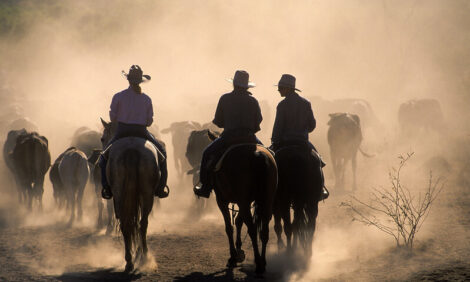



How Do We Manage Vector-Borne Disease in Livestock?
ANALYSIS – Prediction and vaccination are two important tools when dealing with the increased risk of vector-borne diseases as agriculture adapts to changing climates.Altering weather patterns have so far been managed through vector forecasts, surveillance and the ability to react to new diseases, such as Schmallenberg and Bluetongue.
This is according to advisers at animal health company Merial, a company producing vaccines for both viruses, who have welcomed new science from the University of California that could assist in predicting Bluetongue flare-ups.
The virus survives winters by reproducing in the host Culicoides midge, the study learned.
Ruminant technical manager manager with Merial UK, Sioned Timothy, said this was ‘very relevant’ and would be helpful in assisting with any future outbreaks.
“The critical thing with exotic disease is that we are always under a level of risk from them,” she explained. “Surveillance is key.”
Commenting on the UK scenario, she said: “On the whole we are lucky with our temperate climate.”
But Bluetongue has several serotypes and the strain currently spreading through the Balkans is very different to the African strain which hit Europe some years ago.
The Balkans virus is serotype 4, with the UK vaccine safeguarding livestock against serotype 8.
“There is no cross protection of Bluetongue vaccines across the serotypes,” said Mrs Timothy. “A big distinction lies between the UK strain and serotype 8 circulating in Europe now.”
And as this year’s sheep breeding period progresses for many, Merial has noted strong interest in the Schmallenberg vaccine.
Victoria Hudson, ruminant product manager, said: “We have had a lot of enquiries about our pre-tupping schmallenberg vaccine.”
Administered four weeks before tupping, the vaccine is still being considered as schmallenberg remains a concern for some farmers.
“It seems that schmallenberg is very much in the mind of producers as a way insuring against the disease as a precaution,” said Mrs Hudson.
“Climate change means uncertainty, this offers peace of mind.”
Michael Priestley
News Team - Editor
Mainly production and market stories on ruminants sector. Works closely with sustainability consultants at FAI Farms



